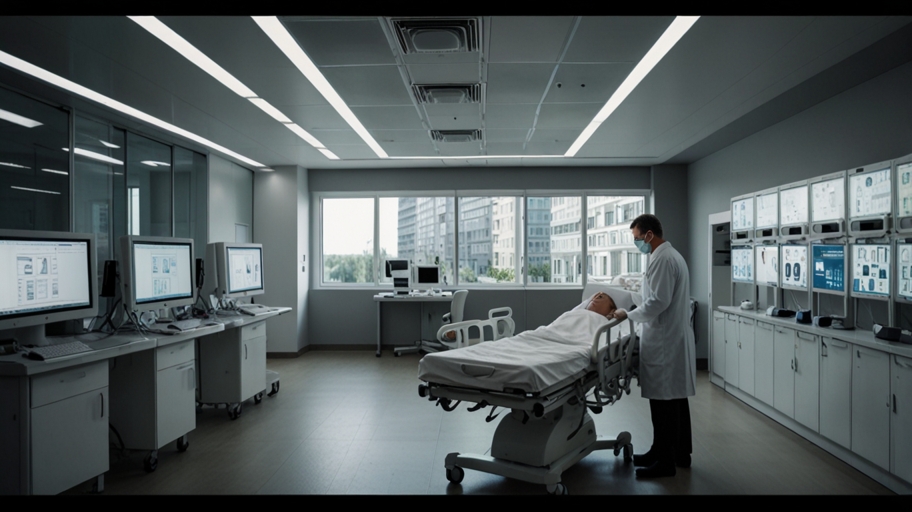The software industry in Germany continues to face tough times as it copes with different types of challenges like economic downturns and structural difficulties. The predictions recently made by the industry groups for 2025 show a somewhat bleak picture of the year that is to come, with some branches that are dropping and others that are still on the right track. The robotics and automation sector is the mainstay of German industrial excellence, and this year, it expects the biggest decline in sales. According to the VDMA Robotics + Automation Association, the number of orders placed in the sector is expected to decrease by 9% to EUR 13.8 billion in 2025, following a 6% decrease in 2024.
This slump in the robotics and automation area is said to be caused by a combination of factors, such as the overdoing of the automotive sector and the competitiveness loss in global markets. Dietmar Ley, who is the chairman of the VDMA Robotics + Automation Association, has called the government for immediate measures to resolve these issues and also mentioned that the business models and policies of the government should be constantly updated. The association has suggested enterprises pay more attention to innovativeness and give customers products at competitive prices. They think this will be the only way to retain the position of Germany as a leader in the industrial technology industry.
Even with the difficulties that occur in some areas, the entire German tech sector is still very lively and it always attracts serious investments. Microsoft’s recent €3.3 billion investment in AI and cloud infrastructure in Germany ties closely to the significance of the country as a tech hub. The money also will be used to set up new structural facilities in North Rhine-Westphalia and Frankfurt. This measure will make digital infrastructure sturdier in Germany and provide career opportunities to tech workers and businesses to initiate operations in this sector.
Between January and September 2024, the biotech industry in Europe has placed an investment of more than €1.6 billion with companies from Germany. The same period last year was only a 70% increase. These are the kinds of start-ups that are trying to bring new approaches to the treatment of various diseases of modern life, like radiopharmaceuticals, tumor-resistant gene mutation research, and cancer immunotherapies, and they are the ones that attract a significant amount of capital from venture capitalists from all over the world, positioning Germany as a major participant in the world’s medical sciences industry.
Germany’s technology hub is now at a turning point as federal elections approach in this country. Berlin, for example, has become one of the most significant startup hubs in Europe, and the German deep tech sector, in turn, has gained a reputation worldwide while industry veterans, particularly the ones thriving in this sector, are of the view that the country still lacks enough enablers for startups to grow. Bureaucracy-related problems and a lack of policies take place off the record when discussing the main reasons for the decline in the industry. The incoming government’s actions will be very crucial in setting the stage for Germany in the global tech rivalry and in solving these challenges.
The German government’s huge move in digitization was easily recognizable when they launched the Digital Strategy 2025, which is their all-inclusive plan to make technology accessible by increasing connectivity, fortifying resilience, and pursuing cyber security, education, and regulation areas. One of the other key points of this strategy is the construction of a modern digital infrastructure that offers more speed and capacity than most of the currently used wired networks and limits the number of dispersed optical fiber networks. As a result, these reforms are anticipated to facilitate The German economy’s transition to the gigabit era without glitches.
German technology job market will continue to be dynamic, with cybersecurity experts and software developers in high demand. The number of cybersecurity incidents has been on the rise, with a 70% increase in hacking attacks since 2022, which has, in turn, encouraged the requirement for skilled professionals in this field. Entry-level software developers are expected to make approximately €43,000 a year, while cybersecurity professionals are getting an average of €63,000 per year.
As the nation continues to navigate through the technology and economic terrains that are more complex, the engineers, research institutions, and Europe’s largest market, that is, Germany will be the calving technology sector in the future. Nevertheless, overcoming the challenges of bureaucracy, maintaining competitiveness, and fostering innovation are the main ways for Germany to keep up as a tech global leader of the future.
